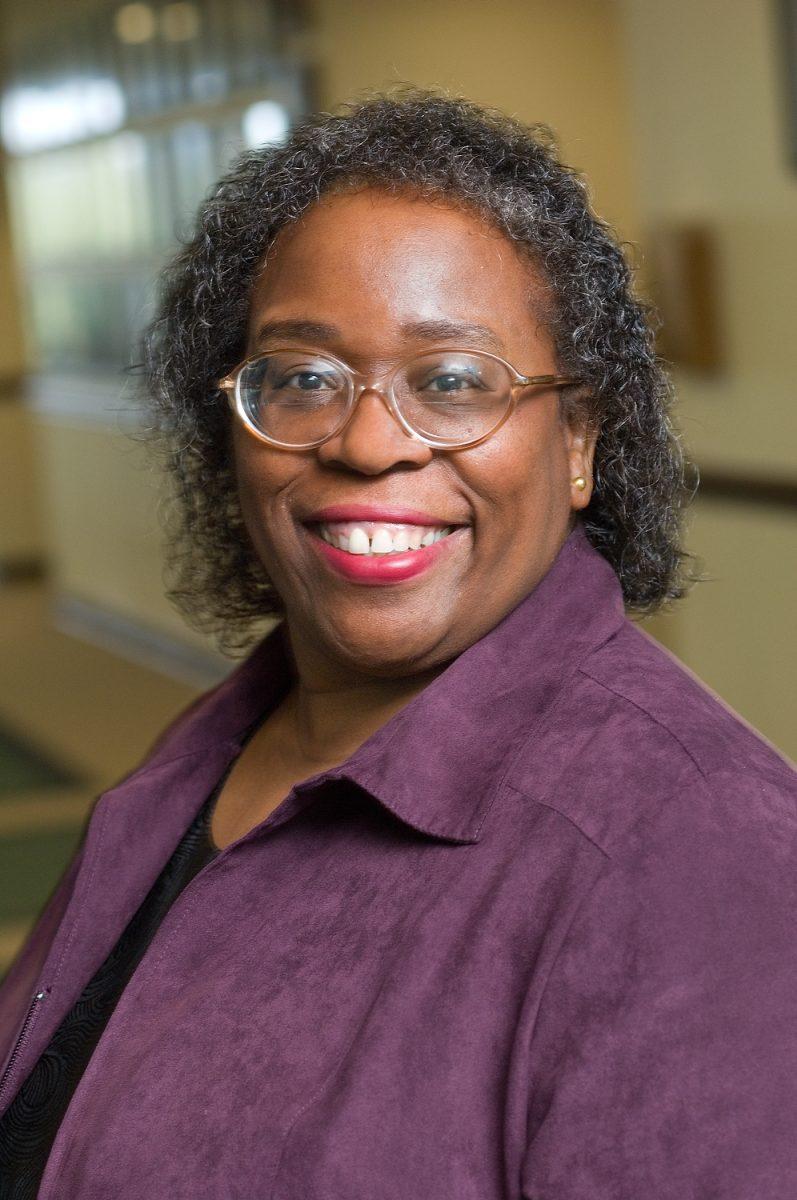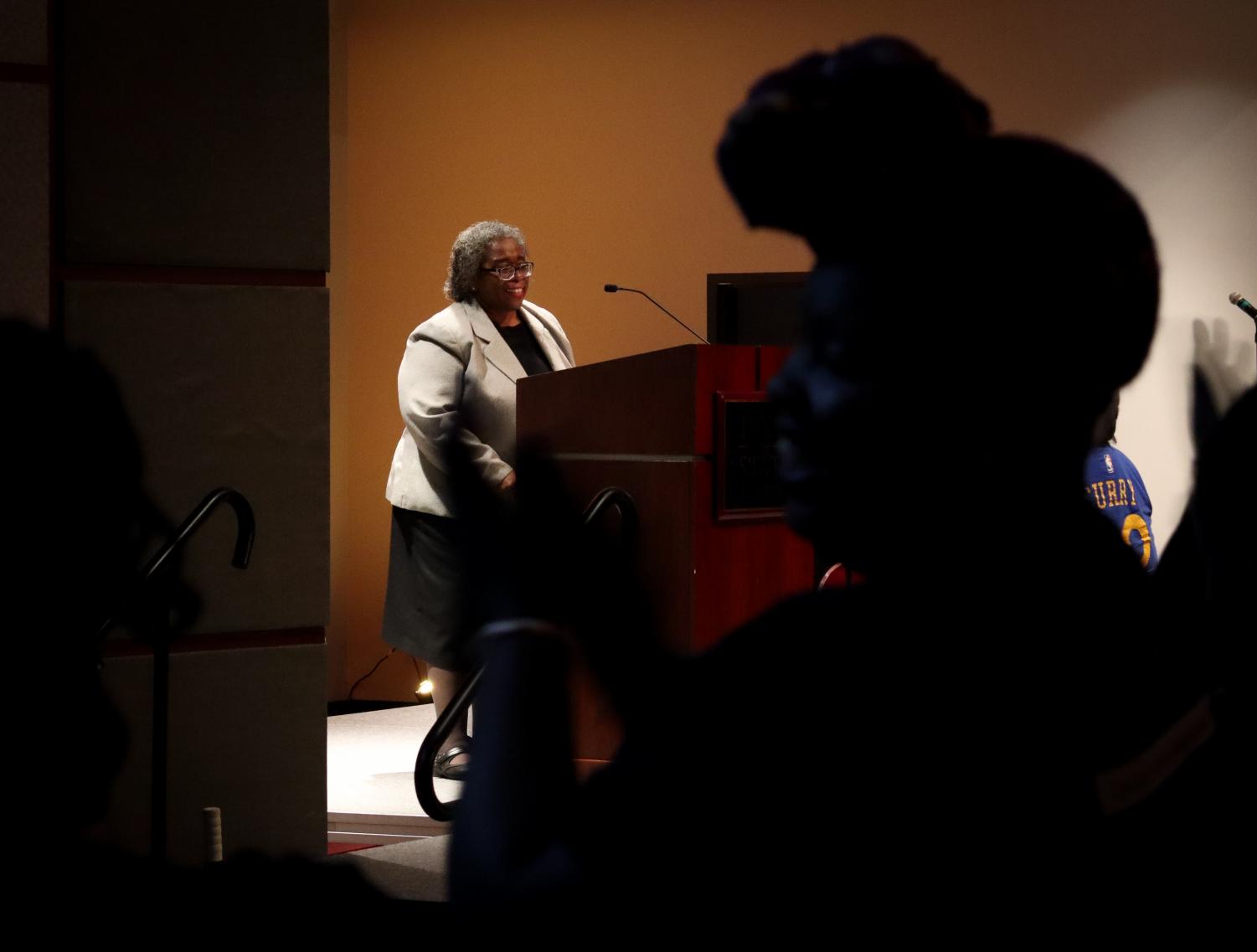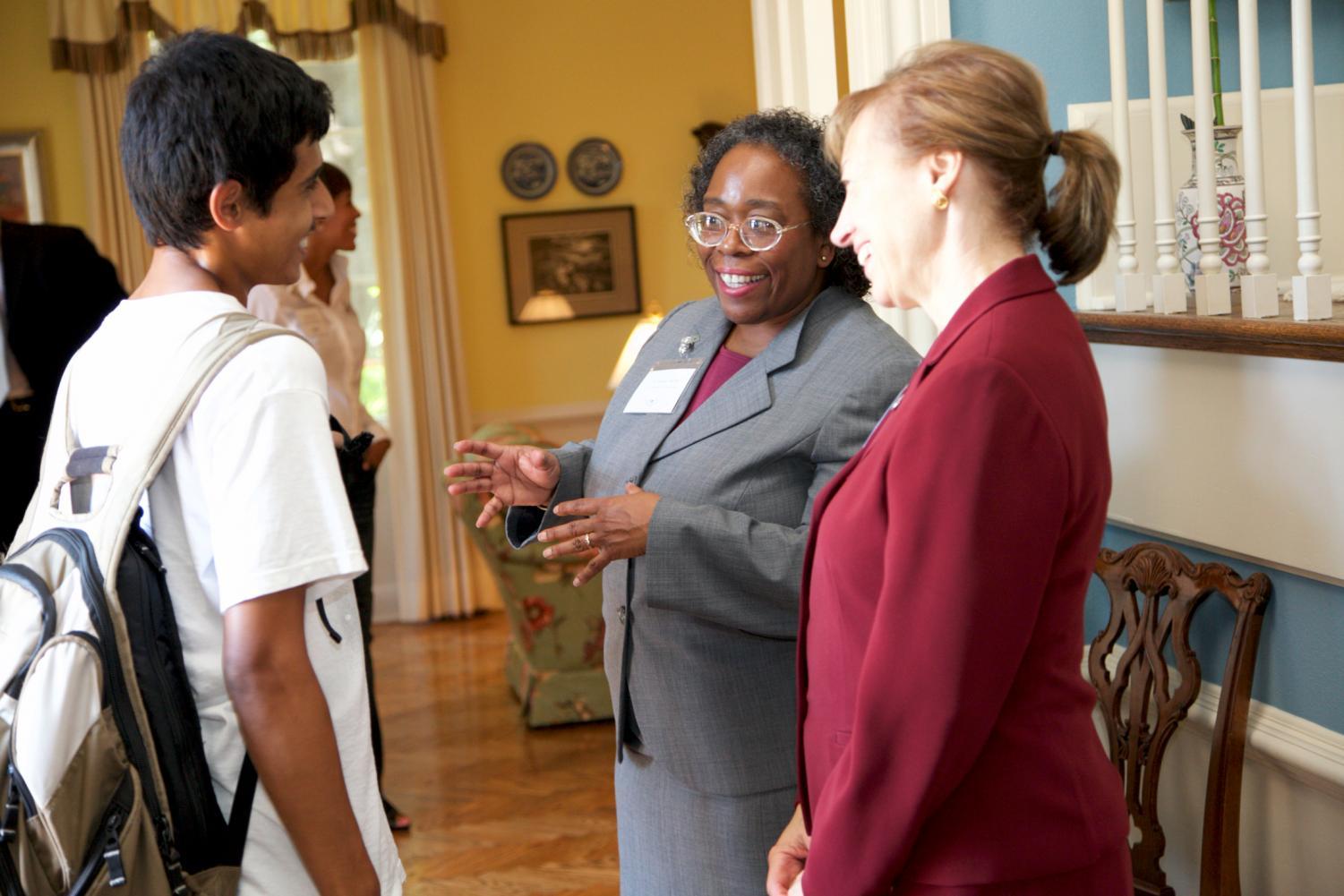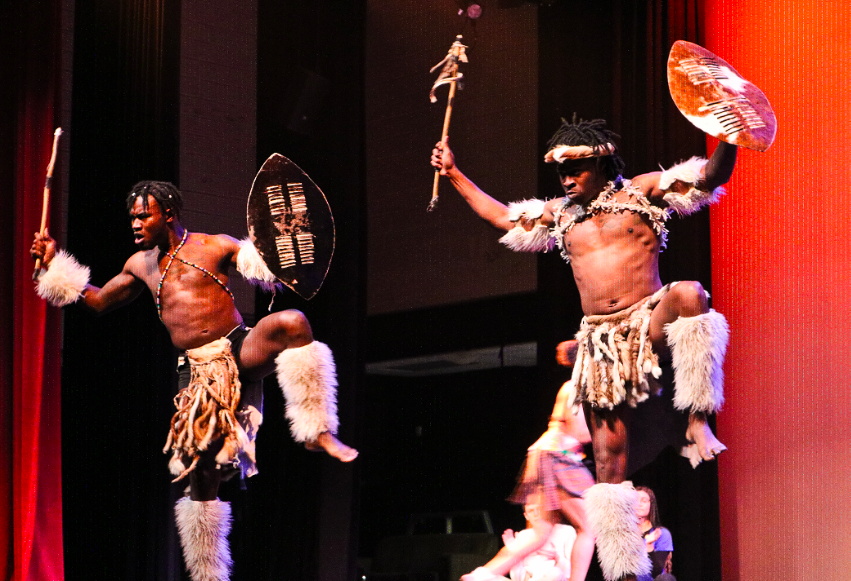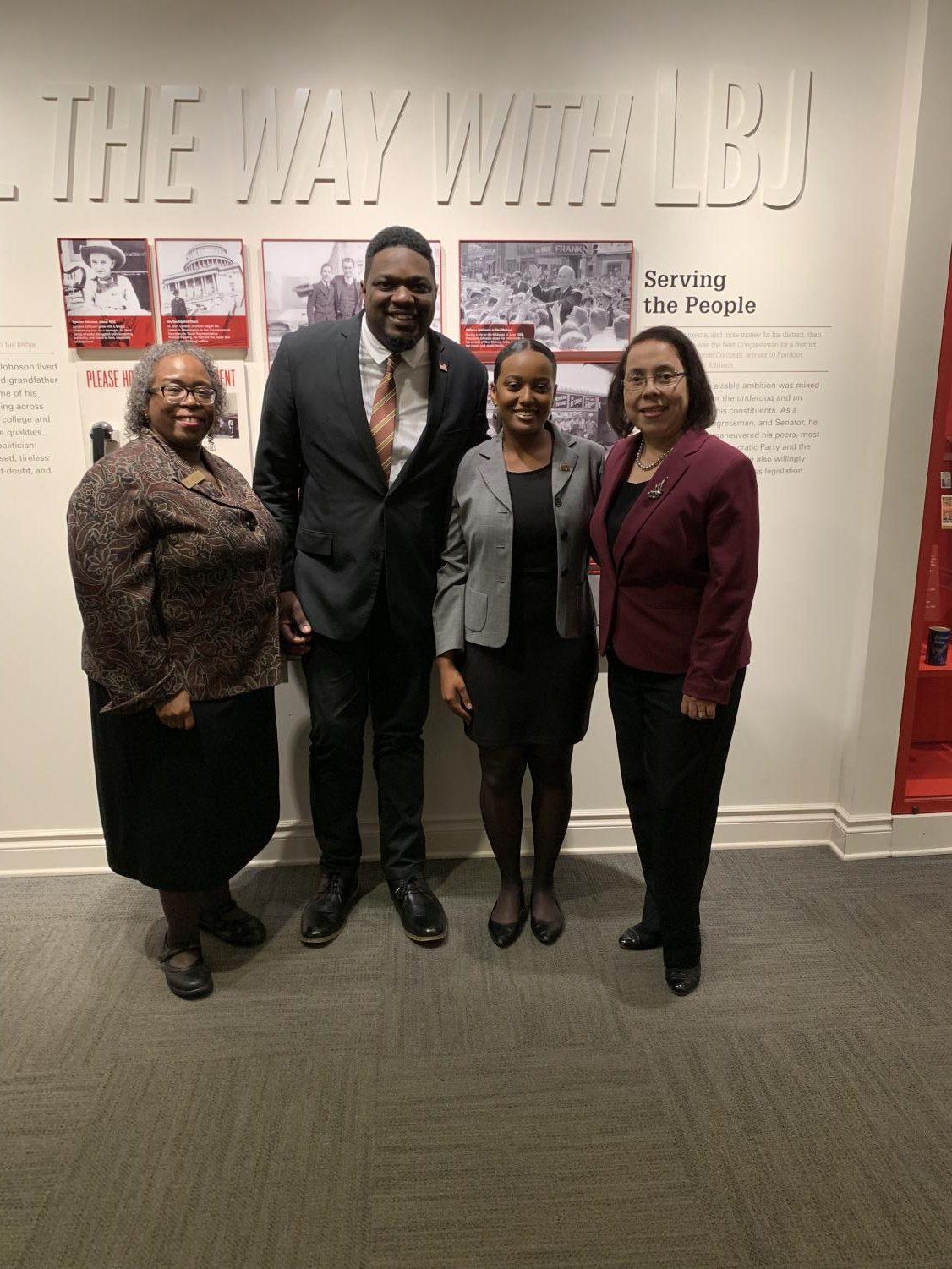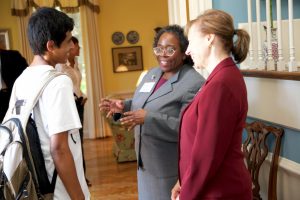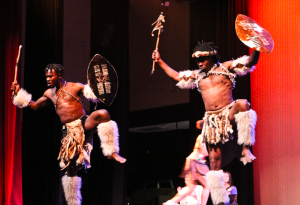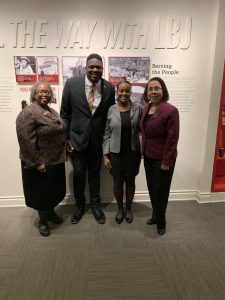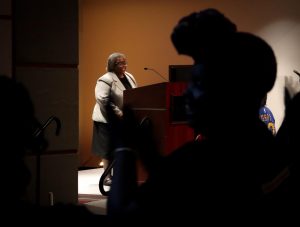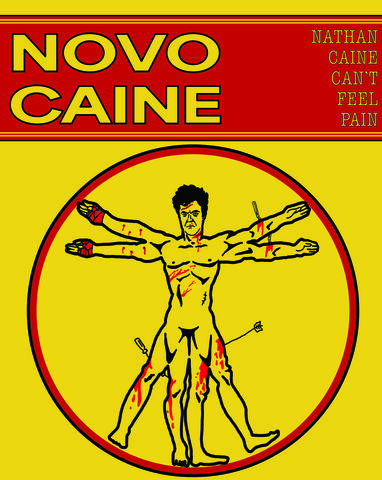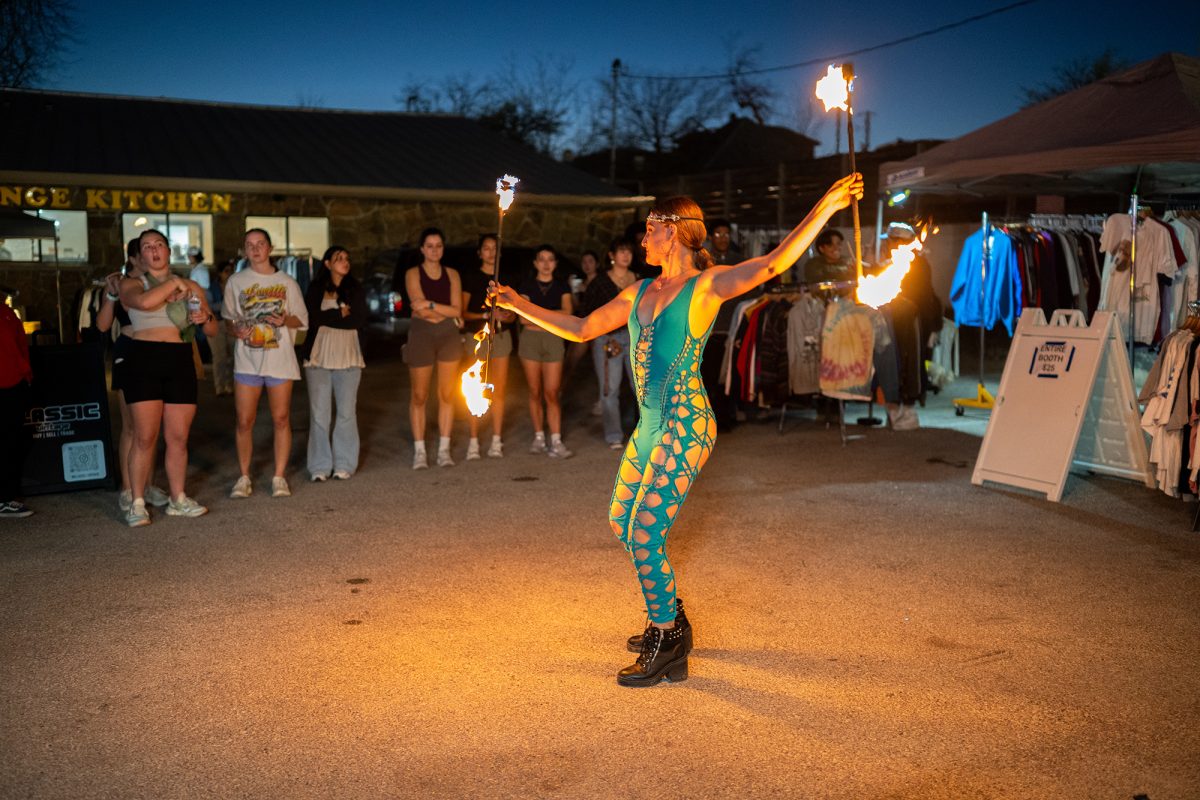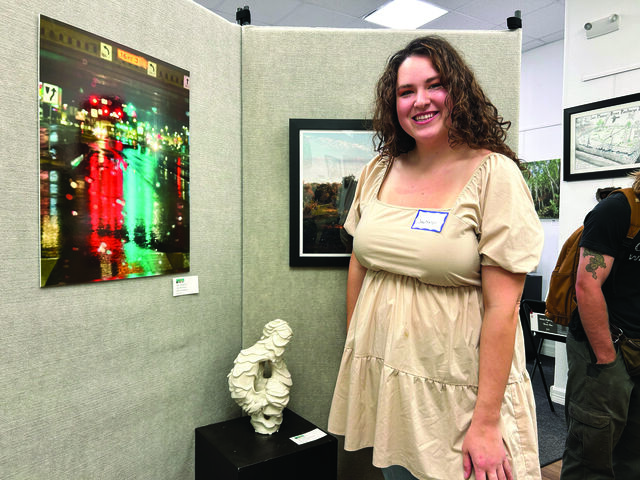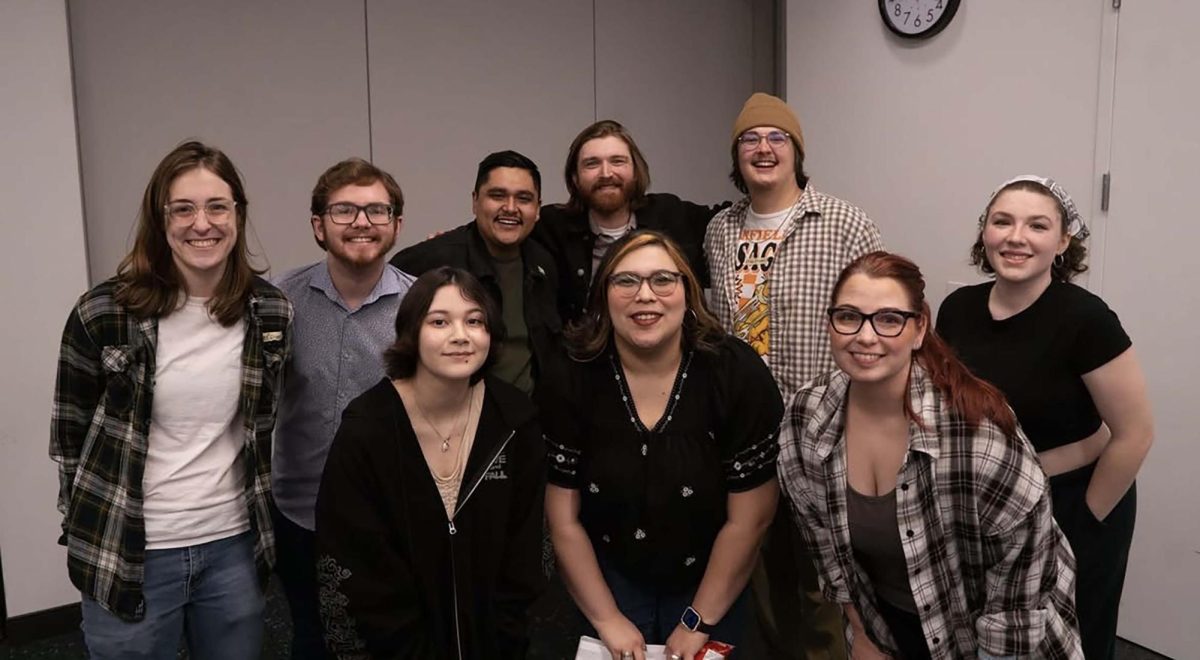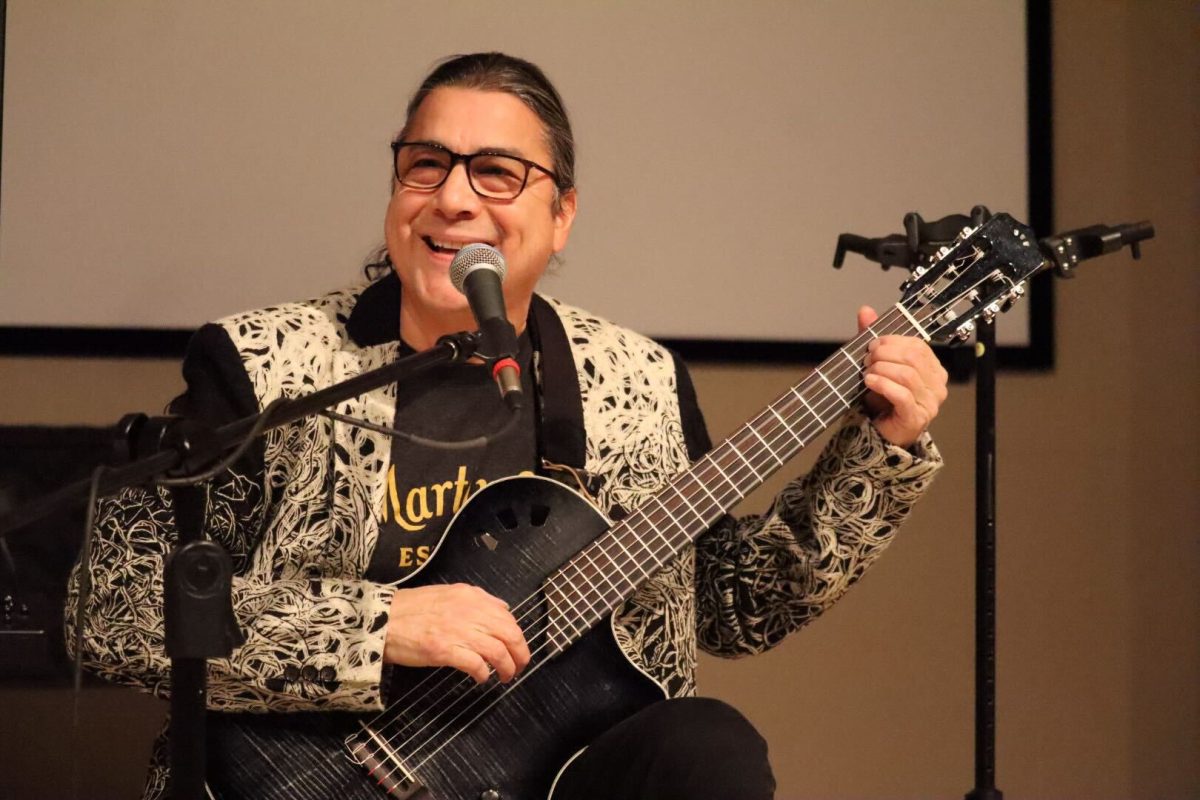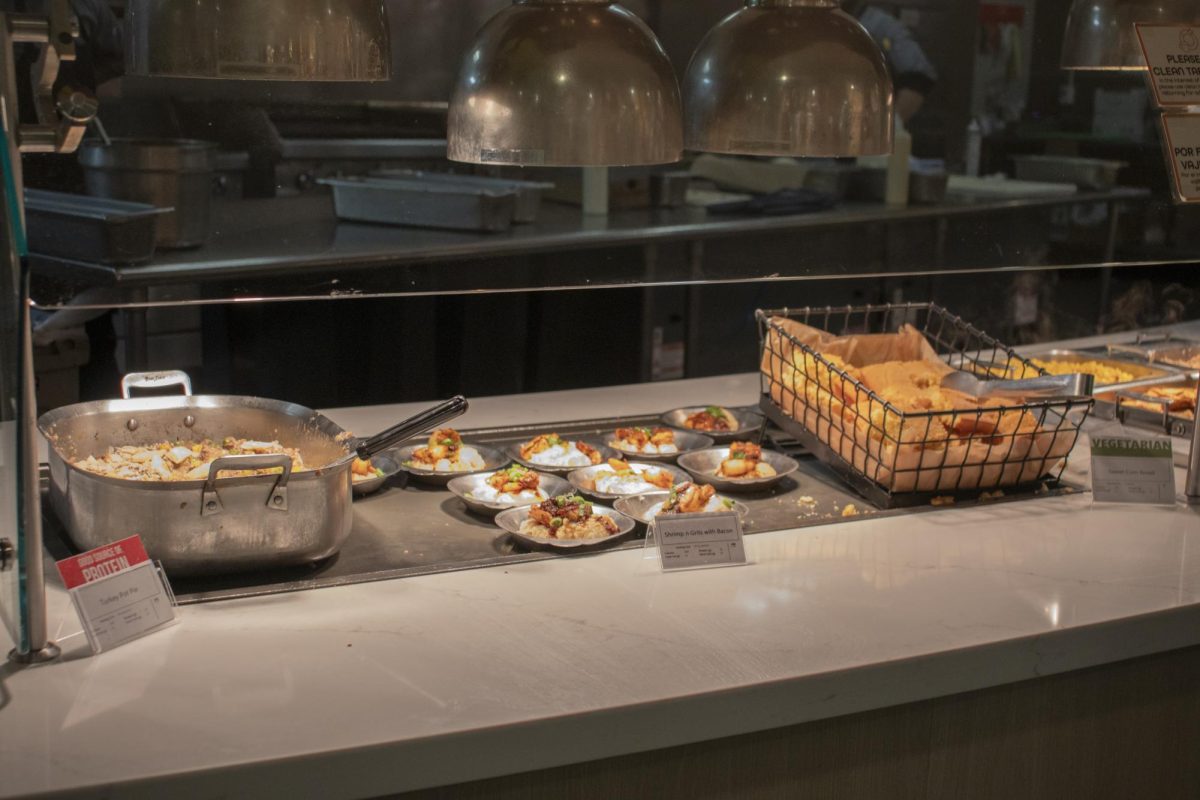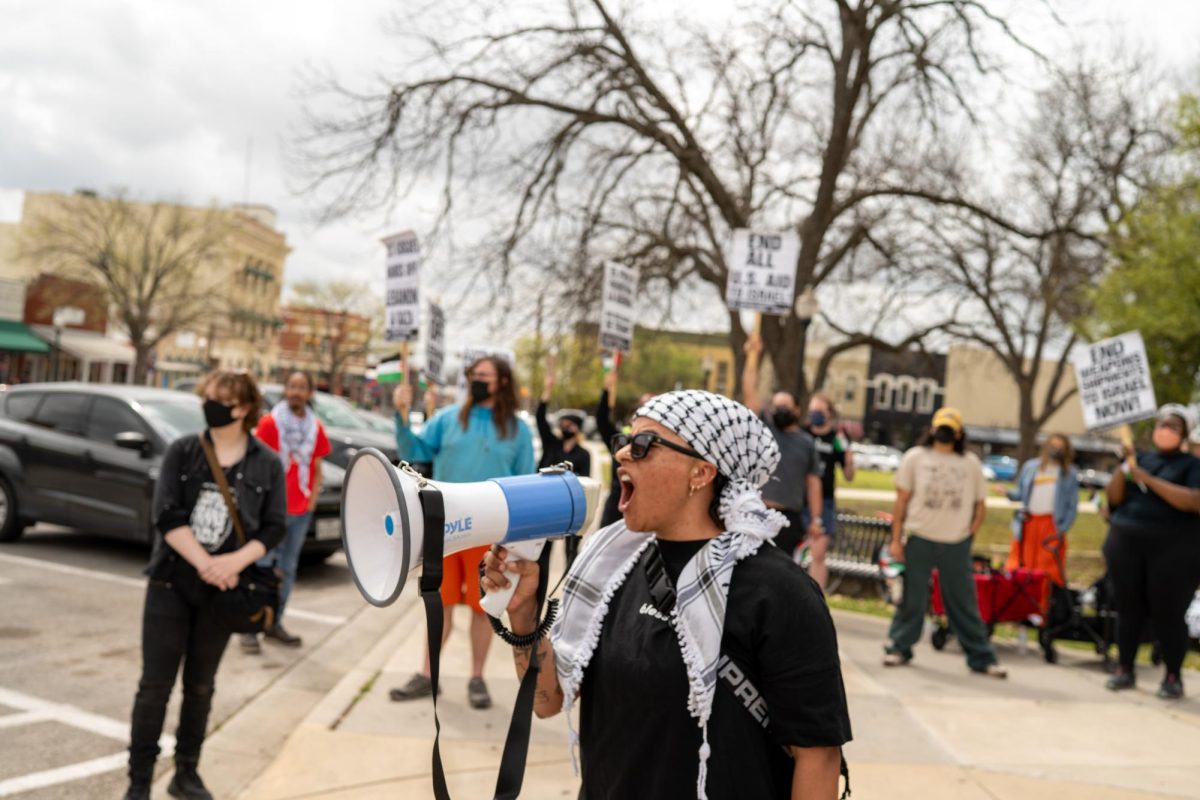Dr. Joanne Smith sat at her L-shaped desk topped with books, binders and folders in the J.C. Kellam Administration Building at Texas State, reminiscing on her work experiences and half-joking about how the next person in her position would have to be good at technology.
“When I interviewed here [in 1991], I had to go to the library and use microfiche,” Smith said. “We’ve come a long way… I’ve had to learn all of the technology over the last [several] years.”
But Smith did not need advanced technology to teach herself how to interact with people. A career in education since 1976 and life experiences taught her it would take strong communication skills and relationship-building to succeed, especially at a historically white institution like Texas State.
After almost 30 years, holding important roles in Housing and Residential Life and Student Affairs, Smith retires with a resume full of service to students and contributions to a university that largely benefited from not only a black voice—but the voice of a black woman.
Since becoming vice president of Student Affairs in 2005—her most pivotal role—Smith witnessed the university transform into a majority-minority institution; facilities and enrollment grew tremendously; and thousands of Bobcats received their diplomas as a result of her contributions.
Smith’s fingerprints were all over Bobcat Preview and the creation of the Retention Management and Planning office—both aimed at improving university retention. She played a major role, if not the biggest, in the creation of the residential college program involving groups of students taking courses together while completing social activities.
Smith said every task she was called on to do involving students—big or small—never felt like a job. She genuinely admired showing up every day and taking on the challenges presented.
“This is what I’ve chosen as my life’s work… I love [working with students and others],” Smith said. “For me, personally, [this job] has been a part of me, a part of my life; I’ve enjoyed it.”
Smith said when she assumed her role as vice president, the administration often talked about a culture of care and making sure students were successful and graduating. Her most proud accomplishment was being able to spread that culture across campus.
But that culture did not manifest without bumps in the road. While Smith and the university experienced growth in Student Affairs, at times, students of color endured a campus climate they felt was not inclusive, filled with white supremacy, protests, sit-ins and student arrests.
Smith’s upbringing in Pennsylvania and the segregated south prepared her for those moments. She said witnessing discrimination—not being able to sit in the front row of a movie theater or get a clean hotel room—provided her the knowledge and expertise to help students, faculty and administration address hardships.
“[The feelings] of what happened back when I was growing up and dealing with [hardships] came back [to me on campus],” Smith said. “But as an older person, having gone through that, you can manage some of those feelings…my job was to help find a place to help other people understand that this kind of stuff happened before, and ‘here [are] some things that [we did back then] to try to manage it.’”
Through the highs and lows, the administration relied on Smith to help frame and understand situations and come up with solutions that placed students first. Texas State President Denise Trauth said Smith understood the complexity of the university and provided a perspective that, throughout the institutional history of Texas State, had been missing.
“The reality is [Smith] had life experiences that myself, a white woman, did not have,” Trauth said. “She was able to articulate things based on those life experiences—that the [President’s] Cabinet needed to hear.”
Working closely with Smith on a day-to-day basis for 15 years, Trauth said she always trusted Smith would place students first and work as hard as she could to achieve what students needed.
“She absolutely loves students,” Trauth said. “I think she spends 99% of her waking hours thinking about working for, working with our students; it’s really the focus of her life.”
In Amanda Handsbur’s first year as a graduate student at Texas State, she reached out to Smith to inquire about an internship in Student Affairs; she told Smith she wanted to be her intern. Smith told her if she came back a year later, she would help her get the ball rolling.
In the second year of Handsbur’s graduate program, Smith kept her promise.
Handsbur said witnessing a black woman in a position of power served as an inspiration to her. She said watching Smith taught her the importance of confidence, tone and adaptation.
“Personally, she’s allowed me to be me,” Handsbur said. “[She advised me] to keep doing what I’m doing, just to live every day and not worry about what other people are thinking. [She taught me] if you have, you know, anything that you want to do, you do it…Don’t be afraid to push [an idea] onto something and do it.”
Throughout former Student Government President Corey Benbow’s time in office, he said Smith was always the person he could go to with a problem, and if he needed something, she would always do her best to help out.
When Student Government went through financial troubles and needed to pay for its menstrual health programs and a diversity week, Smith stepped up and helped cover the costs on behalf of her department.
On a more personal level, Benbow said Smith helped him navigate the difficult tasks associated with being the voice of the student body—a black voice.
“She could sit down and speak to me heart to heart without all the barriers that are presented in a professional type of relationship,” Benbow said. “I think those things are very important for students of color. So, it’s important to have those individuals that reflect who we are and understand where we come from, that we can go and talk to. There’s no value that can be put on it because it’s just been [beneficial].”
Trauth said with a woman like Dr. Smith retiring—an ethical, moral, empathetic, honest and experienced person—Texas State is losing a lot. Trauth said Smith contributed greatly to building the university and getting it to the place it is today.
“There’s a [famous] saying, ‘leave a place better than you found it,’” Trauth said. “I think there’s no question: She’s leaving Student Affairs better than she found it.”
There were many things Smith contributed to and accomplished during her nearly three decades at Texas State, but nothing exceeded her care for and impact on students. She showed others how to frame responses through trial and triumph and left behind a legacy future administrators, faculty and students can look back on and learn from.
“I think her service, whether we realize it or not, [had] a great impact on people’s culture, especially at Texas State just with diversity [and] inclusion initiatives and social justice being a thing,” Handsbur said. “I think that her presence really gave us the mark of like, ‘Okay, if she can do this, and she can take us in a certain direction, I think we’ll be okay.’”
The University Star
·
Dr. Joanne Smith’s speech at the 2020 MLK Commemoration Celebration
Categories:
Plight to perspective: Beloved black voice retires after decades of student service
May 28, 2020
A portrait of Dr. Joanne Smith. Smith worked at Texas State for nearly thirty years, holding positions in Housing and Residential Life and Student Affairs. Smith’s most pivotal role came in 2005, when she became vice president of Student Affairs. (Courtesy of Dr. Joanne Smith)
0
Donate to The University Star
Your donation will support the student journalists of Texas State University. Your contribution will allow us to purchase equipment and cover our annual website hosting costs.
More to Discover



